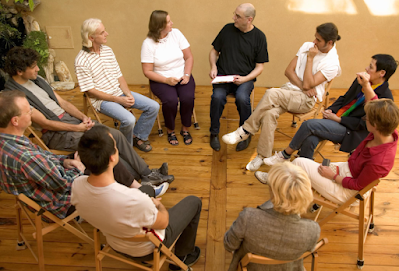Group Therapy: The Benefits of Healing Together
The Benefits of Group Therapy
1. Increased Support
Group therapy provides a supportive environment where individuals can share their experiences and feelings with others who are going through similar struggles. This can help individuals feel less alone and isolated in their struggles, and can provide a sense of community and belonging.
2. Different Perspectives
Group therapy allows individuals to hear different perspectives on their problems from other group members. This can help individuals gain new insights and approaches to their problems that they may not have considered before.
3. Increased Accountability
Group therapy encourages individuals to be more accountable for their actions and progress. Knowing that others in the group are watching and supporting them can provide motivation to stick to goals and make positive changes in their lives.
4. Cost-Effective
Group therapy is often more cost-effective than individual therapy sessions, as the therapist's time is divided among multiple individuals. This can make therapy more accessible for those who may not be able to afford individual sessions.
How Group Therapy Works
Group therapy sessions typically last between 60 to 90 minutes and are led by a trained therapist. The therapist will guide the discussion, but the focus is on the group members and their individual struggles. Group members are encouraged to share their experiences and offer support to others in the group.
The number of group members can vary, but groups typically consist of 5-10 individuals. Groups may be open or closed, meaning new members can join an open group at any time, while closed groups are formed with a set number of members and do not accept new members after the group has started.
The Pros and Cons of Group Therapy
Pros of Group Therapy
- Provides a supportive environment
- Offers different perspectives on individual problems
- Increases accountability
- Cost-effective
- Encourages socialization and community
Cons of Group Therapy
- Less individual attention from the therapist
- Sessions may be less private
- May not work for everyone
- Group dynamics can be challenging
FAQ
1. Is group therapy as effective as individual therapy?
Yes, group therapy has been shown to be as effective as individual therapy for a range of mental health issues. However, individual therapy may be more appropriate for certain individuals, depending on their specific needs and circumstances.
2. Can I join a group therapy session even if I am shy?
Yes, group therapy can be beneficial for shy individuals, as it can help them feel more comfortable in social situations and develop social skills.
3. Can I bring a friend or family member to a group therapy session?
No, group therapy sessions are typically closed to outside individuals, as the focus is on the group members and their individual struggles.
4. How long does group therapy last?
Group therapy sessions typically last between 60 to 90 minutes, and the length of the overall therapy process can vary depending on the individual's needs and progress.
Overall, group therapy can be a powerful tool for individuals seeking support and healing. By providing a supportive community, different perspectives, increased accountability, and cost-effective treatment, group therapy offers a unique and effective approach to mental health treatment.

